
Theodosius Grigorievich Dobzhansky was an American geneticist and evolutionary biologist. He was a central figure in the field of evolutionary biology for his work in shaping the modern synthesis and also popular for his support and promotion of theistic evolution as a practicing Christian. Born in the Russian Empire, Dobzhansky immigrated to the United States in 1927, aged 27.

Walter Gilbert is an American biochemist, physicist, molecular biology pioneer, and Nobel laureate.

Gregory Bateson was an English anthropologist, social scientist, linguist, visual anthropologist, semiotician, and cyberneticist whose work intersected that of many other fields. His writings include Steps to an Ecology of Mind (1972) and Mind and Nature (1979).

Octavia Estelle Butler was an American science fiction writer who won several awards for her works, including Hugo, Locus, and Nebula awards. In 1995, Butler became the first science-fiction writer to receive a MacArthur Fellowship.
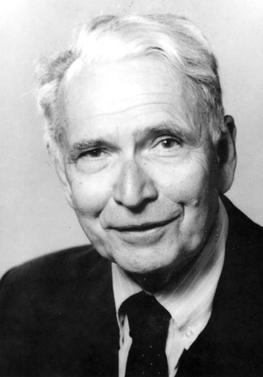
Erwin Chargaff was an Austro-Hungarian-born American biochemist, writer, and professor of biochemistry at Columbia University medical school. A Bucovinian Jew who emigrated to the United States during the Nazi regime, he penned a well-reviewed autobiography, Heraclitean Fire: Sketches from a Life Before Nature.

Mary Beatrice Midgley was a British philosopher. A senior lecturer in philosophy at Newcastle University, she was known for her work on science, ethics and animal rights. She wrote her first book, Beast and Man (1978), when she was in her late fifties, and went on to write over 15 more, including Animals and Why They Matter (1983), Wickedness (1984), The Ethical Primate (1994), Evolution as a Religion (1985), and Science as Salvation (1992). She was awarded honorary doctorates by Durham and Newcastle universities. Her autobiography, The Owl of Minerva, was published in 2005.
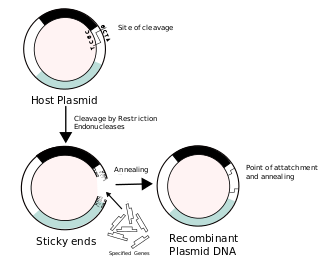
Recombinant DNA (rDNA) molecules are DNA molecules formed by laboratory methods of genetic recombination that bring together genetic material from multiple sources, creating sequences that would not otherwise be found in the genome.
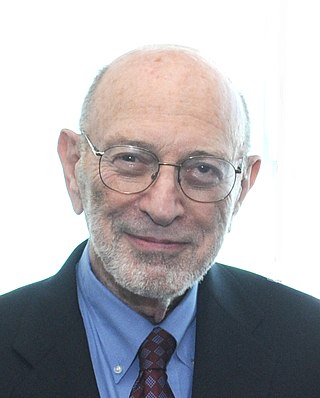
Stanley Norman Cohen is an American geneticist and the Kwoh-Ting Li Professor in the Stanford University School of Medicine. Stanley Cohen and Herbert Boyer were the first scientists to transplant genes from one living organism to another, a fundamental discovery for genetical engineering. Thousands of products have been developed on the basis of their work, including human growth hormone and hepatitis B vaccine. According to immunologist Hugh McDevitt, "Cohen's DNA cloning technology has helped biologists in virtually every field". Without it, "the face of biomedicine and biotechnology would look totally different." Boyer cofounded Genentech in 1976 based on their work together, but Cohen was a consultant for Cetus Corporation and declined to join. In 2022, Cohen was found guilty of having committed fraud in misleading investors into a biotechnology company he founded in 2016, and paid $29 million in damages.
David Berlinski is an American mathematician and philosopher. He has written books about mathematics and the history of science as well as fiction. An opponent of evolution, he is a senior fellow of the Discovery Institute's Center for Science and Culture, an organization that promotes the pseudoscientific idea of intelligent design. Berlinski professes to be a skeptic about evolution, but he disavows belief in intelligent design.
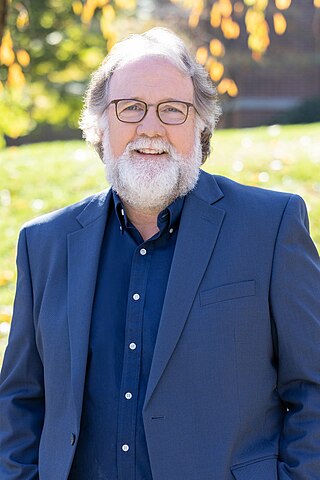
Sean B. Carroll is an American evolutionary developmental biologist, author, educator and executive producer. He is a distinguished university professor at the University of Maryland and professor emeritus of molecular biology and genetics at the University of Wisconsin–Madison. His studies focus on the evolution of cis-regulatory elements in the regulation of gene expression in the context of biological development, using Drosophila as a model system. He is a member of the National Academy of Sciences, of the American Philosophical Society (2007), of the American Academy of Arts and Sciences and the American Association for Advancement of Science. He is a Howard Hughes Medical Institute investigator.

Nicholas Michael Landon Wade is a British author and journalist. He is the author of numerous books, and has served as staff writer and editor for Nature, Science, and the science section of The New York Times.
Dorothy Wolfers Nelkin was an American sociologist of science most noted for her work researching and chronicling interplay between science, technology and the general public. Her work often highlighted the ramifications of unchecked scientific advances and potential threats to privacy and civil liberties. She was the author or co-author of 26 books, including Selling Science: How the Press Covers Science and Technology, The Molecular Gaze: Art in the Genetic Age, and Body Bazaar: The Market for Human Tissue in the Biotechnology Age.
Leonard Brand is an American biologist, paleontologist, and Seventh-day Adventist creationist. He is a professor and past chair of Loma Linda University Department of Earth and Biological Sciences. Brand's most widely debated research was regarding fossil tracks at the Grand Canyon.
The concept of multiple discovery is the hypothesis that most scientific discoveries and inventions are made independently and more or less simultaneously by multiple scientists and inventors. The concept of multiple discovery opposes a traditional view—the "heroic theory" of invention and discovery. Multiple discovery is analogous to convergent evolution in biological evolution.
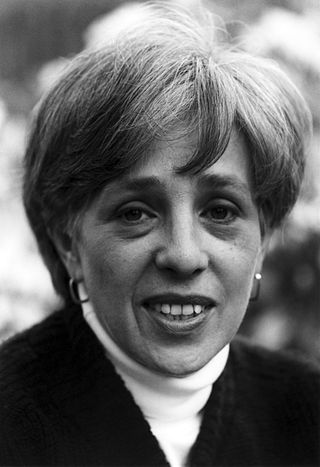
Maxine Frank Singer was an American molecular biologist and science administrator. She was known for her contributions to solving the genetic code, her role in the ethical and regulatory debates on recombinant DNA techniques, and her leadership of Carnegie Institution of Washington.
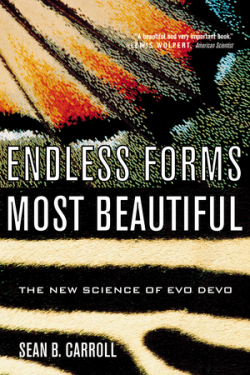
Endless Forms Most Beautiful: The New Science of Evo Devo and the Making of the Animal Kingdom is a 2005 book by the molecular biologist Sean B. Carroll. It presents a summary of the emerging field of evolutionary developmental biology and the role of toolkit genes. It has won numerous awards for science communication.

Before the Dawn: Recovering the Lost History of Our Ancestors is a non-fiction book by Nicholas Wade, a science reporter for The New York Times. It was published in 2006 by the Penguin Group. By drawing upon research on the human genome, the book attempts to piece together what Wade calls "two vanished periods": the five million years of human evolution from the development of bipedalism leading up to behavioural modernity around 50,000 years ago, and the 45,000 subsequent years of prehistory.

A Troublesome Inheritance: Genes, Race and Human History is a 2014 book by Nicholas Wade, a British writer, journalist, and former science and health editor for The New York Times. In the book, Wade argues that human evolution has been "recent, copious and regional" and that this has important implications for social sciences. The book has been widely denounced by the scientific community for misrepresenting research into human population genetics.

Aspects of genetics including mutation, hybridisation, cloning, genetic engineering, and eugenics have appeared in fiction since the 19th century.

Encyclopedia of Science Fiction is a 1978 book of essays about the science fiction genre, largely as a literary form but also covering cinema, TV and illustration.















